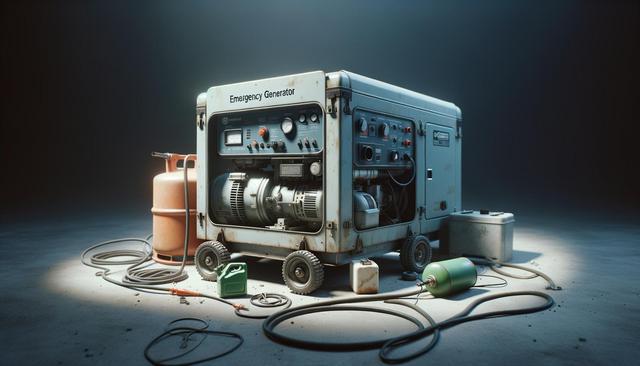Staying Prepared with an Emergency Generator
When unexpected power outages occur, having an emergency generator can make a significant difference in maintaining safety and comfort.

Understanding the Role of an Emergency Generator
An emergency generator is a vital piece of equipment designed to provide temporary electrical power during an outage. Whether due to severe weather, utility failure, or unforeseen accidents, power interruptions can disrupt daily life and pose risks to safety. Emergency generators are engineered to automatically or manually restore electricity, ensuring that essential appliances, lighting, and medical devices continue functioning. For homeowners, businesses, and institutions alike, these generators offer a dependable backup solution.
There are different types of emergency generators, including portable and standby models. Portable generators are often more affordable and versatile, making them suitable for short-term use or outdoor activities. Standby generators, on the other hand, are permanently installed and automatically engage when a power loss is detected. Choosing the right type depends on factors such as power needs, budget, and installation capacity.
Key Features to Consider
Selecting an emergency generator involves evaluating several important features to ensure it meets your unique requirements. One of the primary considerations is fuel type. Generators can run on gasoline, diesel, natural gas, or propane. Each fuel type has its benefits and limitations, so it’s essential to choose one that aligns with availability and storage preferences.
Other crucial features to look for include:
- Wattage capacity to match your power needs
- Automatic or manual transfer switch options
- Noise levels during operation
- Portability and size for space management
- Maintenance requirements and ease of servicing
Additionally, some newer models include smart technology such as remote monitoring, diagnostics, and integration with home automation systems. These innovations enhance user experience and allow for more efficient energy management during outages.
Installation and Safety Guidelines
Proper installation of an emergency generator is critical for both performance and safety. While portable generators can be set up by users with some technical knowledge, standby units usually require professional installation, including permits and compliance with local building codes. Incorrect setup can lead to risks such as carbon monoxide poisoning, electrical hazards, or fire.
To ensure safe operation, follow these guidelines:
- Always operate generators in a well-ventilated outdoor area
- Use heavy-duty extension cords rated for outdoor use
- Never plug a generator directly into a wall outlet
- Keep the generator dry and protected from rain
- Perform regular maintenance checks, including oil and filter changes
Taking these precautions not only safeguards occupants but also prolongs the generator’s lifespan and efficiency.
Cost and Long-Term Value
The cost of an emergency generator can vary significantly depending on its type, capacity, and features. Portable models are generally more budget-friendly, ranging from a few hundred to several thousand dollars. Standby systems, while more expensive initially, offer long-term value through automatic operation and higher power output.
In evaluating cost, it’s important to factor in:
- Installation fees for standby generators
- Fuel consumption and storage
- Routine maintenance and part replacements
- Warranty coverage and support services
Though upfront costs may seem high, the investment pays off in terms of convenience, comfort, and business continuity. Many users also appreciate the peace of mind that comes from being prepared for unpredictable events.
Choosing the Right Generator for Your Needs
Finding the right emergency generator involves a thoughtful assessment of your specific needs and environment. Start by identifying the essential systems and appliances you want to power during an outage. This could include:
- Refrigerators and freezers to preserve food
- Medical equipment for health and safety
- Heating and cooling systems
- Communication devices like phones and routers
- Lighting and security systems
Next, calculate the total wattage required to keep these systems running. Consulting with a licensed electrician or technician can be helpful in creating a comprehensive power plan. Once your power needs are clear, you can match them to a generator that offers suitable output, fuel efficiency, and user-friendly features.
Reading user reviews and seeking recommendations can also provide valuable insights into performance and reliability. As with any significant purchase, investing time in research can lead to a more satisfactory and durable solution.
Conclusion: Be Ready for Anything
Emergency generators are a practical and valuable addition to any home or business, offering a reliable source of power during unexpected outages. By understanding the different types, features, and safety considerations, you can make an informed decision that meets your specific needs. Whether for peace of mind at home or uninterrupted operations at work, having a well-chosen generator in place ensures you’re prepared for whatever comes your way.